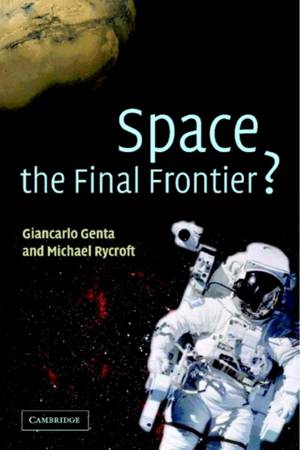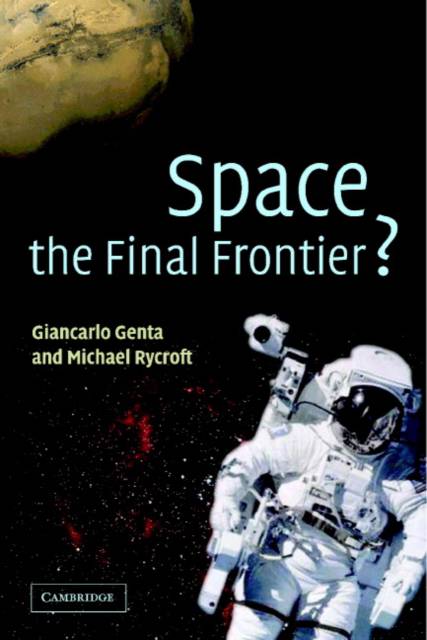
- Retrait gratuit dans votre magasin Club
- 7.000.000 titres dans notre catalogue
- Payer en toute sécurité
- Toujours un magasin près de chez vous
- Retrait gratuit dans votre magasin Club
- 7.000.0000 titres dans notre catalogue
- Payer en toute sécurité
- Toujours un magasin près de chez vous
99,45 €
+ 198 points
Description
What future possibilities for space travel are the most likely to succeed? What are the greatest challenges and advantages of space travel for humankind? What are the potential moral and ethical implications of our space explorations? Space, the Final Frontier imaginatively illustrates the possibilities that the exploration and subsequent exploitation of space opens up for humankind. Giancarlo Genta and Michael Rycroft delve into the factors that encourage space travel and speculate on the future of human expansion into space, including: the value and importance of having humans in space; the human exploration and colonization of our solar system; robotic exploration of the outer planets, their satellites and asteroids; the future possibility that humans may leave our solar system; the prospects and implications of our meeting other intelligent beings in space; the likelihood, consequences, and benefits of future space technologies. This insightful and visionary look at the future of human space exploration will appeal to all readers fascinated by space. Giancarlo Genta is Professor in the Department of Mechanics at the Technical University of Turin, Italy. He obtained degrees in Aeronautical Engineering and Aerospace Engineering from the same university, and his current research in applied mechanics is linked to the construction of machines. He has published a large number of research papers and eight previous books including Vibrations of Structures and Machines: Practical Aspects (Springer-Verlag New York, 1993, 1994, 1998) and Motor Vehicle Dynamics: Modelling and Simulation (World Scientific Publishing Company, 1997). Michael Rycroft is a visiting professor at the International Space University in Strasbourg, France, and at De Montfort University in Leicester, UK. For eleven years he was Head of the Atmospheric Sciences Division at the British Antarctic Survey, Cambridge, and he also spent four years as Professor of Aerospace at Cranfield University. He has acted as Editor-in-Chief for the Journal of Atmospheric and Solar-Terrestrial Physics, Managing Editor of Surveys in Geophysics, and also The Cambridge Encyclopedia of Space (2002).
Spécifications
Parties prenantes
- Auteur(s) :
- Editeur:
Contenu
- Nombre de pages :
- 430
- Langue:
- Anglais
Caractéristiques
- EAN:
- 9780521814034
- Date de parution :
- 17-02-03
- Format:
- Livre relié
- Format numérique:
- Genaaid
- Dimensions :
- 159 mm x 238 mm
- Poids :
- 857 g

Les avis
Nous publions uniquement les avis qui respectent les conditions requises. Consultez nos conditions pour les avis.






